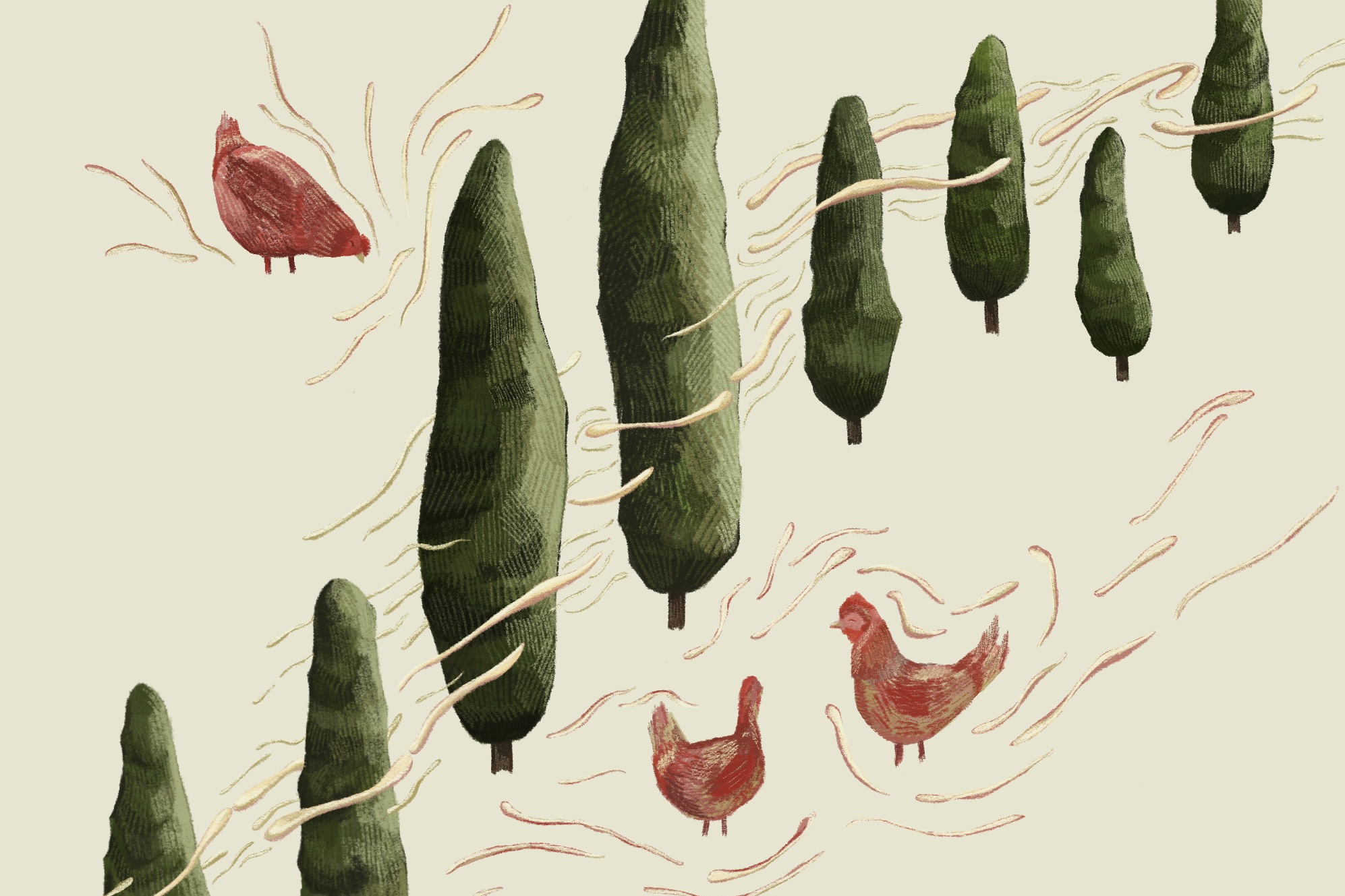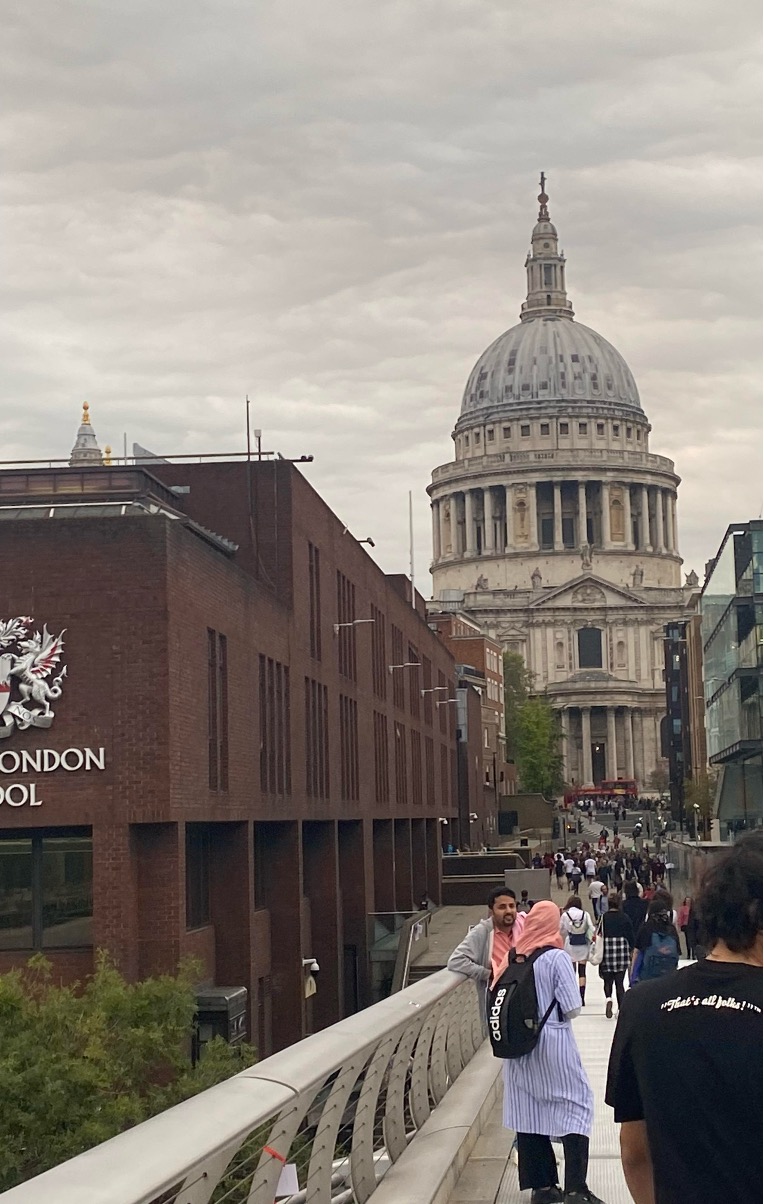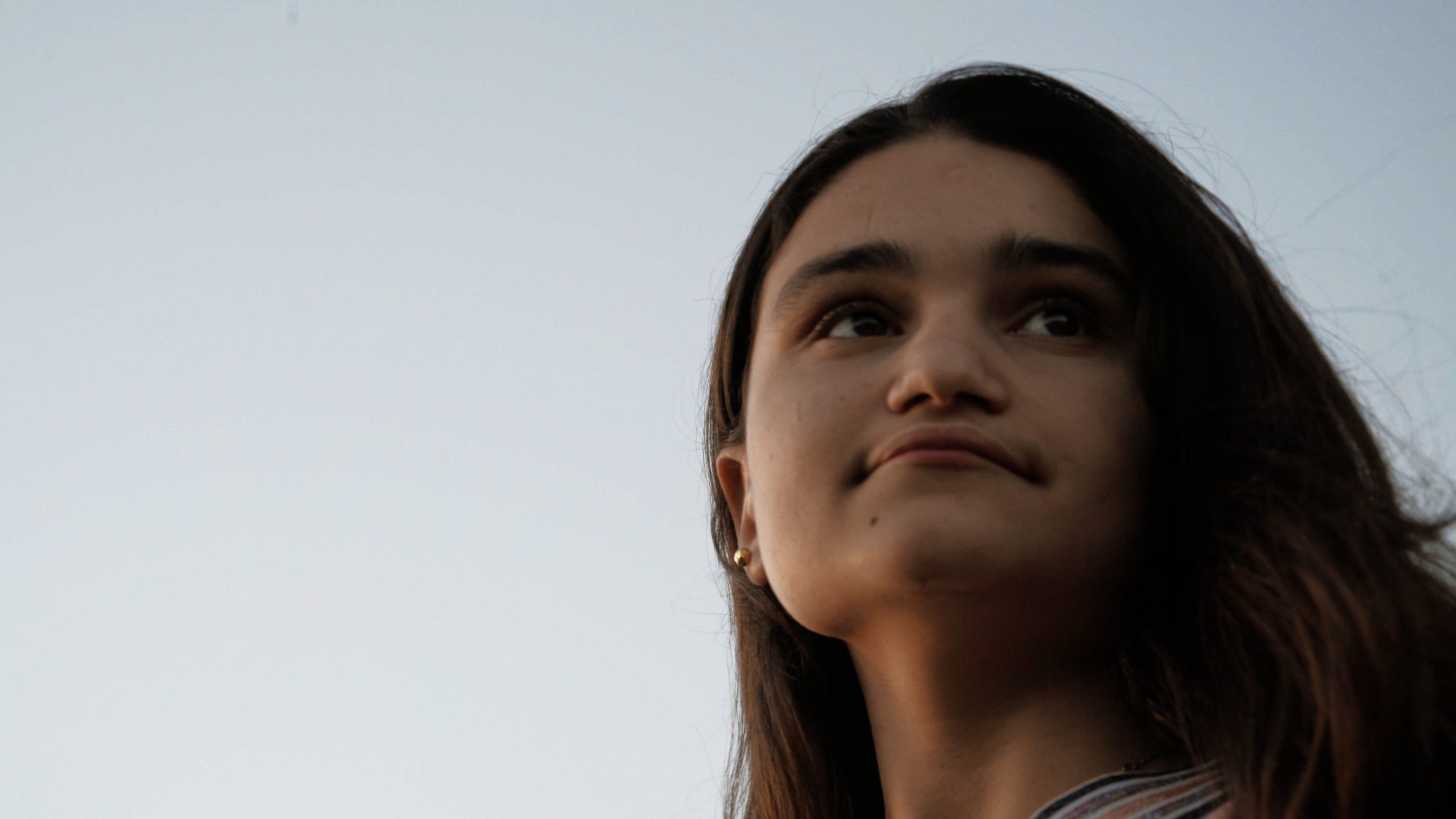
MEDIHA: her life through lens

The Isis were lucky enough to be invited to a screening of MEDIHA. This new film from American director Hasan Oswald follows 15-year-old Mediha Ibrahim Alhamad, who was captured aged 9 by ISIS. I attended the preview with trepidation, wondering if an article on this sensitive topic could come from a magazine whose name provokes a trigger warning when you try and find it on Instagram. I quickly realised, though, that MEDIHA is too important a film to avoid based on confusions between a name for the Thames river and the terrorist organisation.
The foundation that underpins MEDIHA is that Oswald has chosen to hand over the camera to his subject. In doing so, Oswald explains he is “rejecting the idea of documentary as a simple conduit for information transfer or entertainment”, causing his audience to re-evaluate the power imbalance between ‘subject’ and director. Mediha was torn from her home in Sinjar, separated from her family, and enslaved. Oswald frames an intensely personal relationship between Mediha and her camera within the narrative of local rescuers’ attempts to find and bring home Mediha’s mother and youngest brother. Because it is her story to tell, and she has the means of recording it, Mediha is given the power to make us wait until she is ready to divulge her experiences of captivity. I sensed Oswald was asking viewers what they were waiting for; what kind of catharsis should we, the audience, expect from MEDIHA when the wounds of the 2014 Yazidi genocide are still very much open?
The film does not attempt virtuosity. Sat in the small screening-room of the preview, we were left to linger with Mediha’s shaky hand-held clips, raw and largely unedited accounts of her experience as a recently-rescued survivor of ISIS captivity. Dutifully assuming the role of mother to her brothers, Ghazwan and Adnan, the intimate moments of Mediha’s profound tenderness towards her siblings are both heartwarming and disconcerting. Set against the anguish she has been told to suppress, her responsibility takes an evident toll on her own journey to heal her trauma. In one especially intense scene we see a distressed Mediha, hands clasped to ears, in a vain attempt to block the sounds of the Adhan.
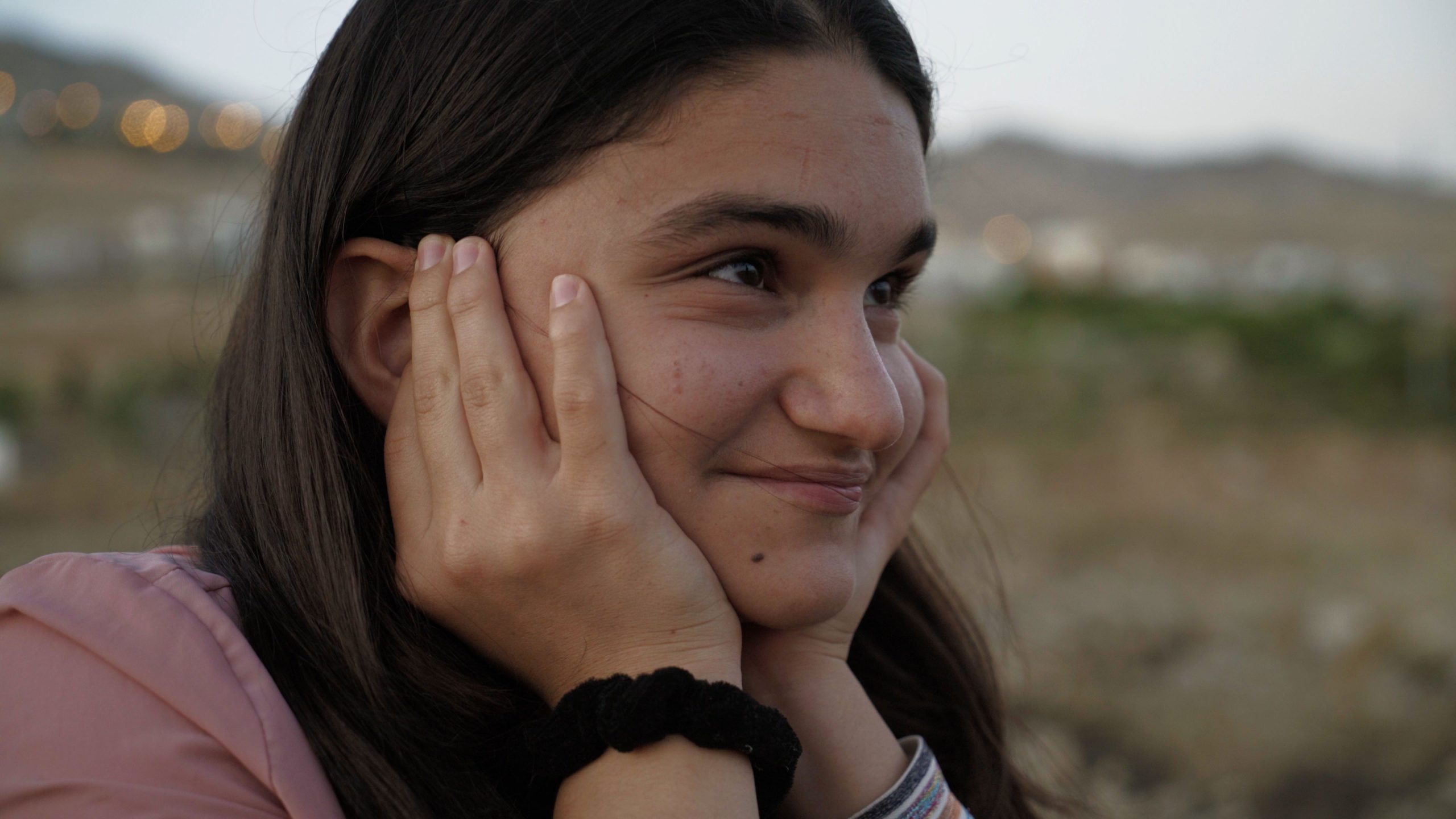
Spending 90 minutes with such a strikingly charming person as Mediha puts us in sustained emotional proximity to the reality of violence committed against Yazidi women and girls by ISIS militants. “I’ll never get tired no matter how long I do this,” says Mediha in one scene, sitting behind a Police computer screen that could at any moment show her a picture of a man she was sold to during her captivity, “I just need a short break.”
Correct handling of this sensitive subject matter was of primary concern to Oswald, and when I asked about his approach he told me that across the four years he spent with Mediha making the film, he “developed a profound bond with her and a personal investment in getting her story absolutely perfect.” While he admitted perfection might be an ambitious goal, Oswald and his team strove to create something “Mediha felt recognized and empowered by.” I then asked Mediha how her camera ‘empowered’ her, to which she responded: “it immediately became my best friend,” going on to say that “everyone should have the experience of filming themselves at least once.”
Oswald’s first documentary, HIGHER LOVE (2020), tells the story of Daryl Gant and his girlfriend Nani, who suffers from heroin addiction. Oswald was drawn to Camden, New Jersey to record the evidence of a “Post-Industrial American Dream gone bust”, telling me that the potency of this personal closeness to his subjects directly influenced the decision to swap out “the traditional lens of talking head-style documentary film” that we see realised in this latest project. MEDIHA is a continuation of Oswald’s travel down an “unconventional path to filmmaking”, from teaching English in Thailand to directing, producing, and writing MEDIHA.
Composed from roughly 50 percent of Mediha’s own footage, this documentary is all about collaboration: between director and subject, between the rescuers in their efforts to reunite families, but most importantly between Mediha and her “best friend”, the camera. From the very beginning of MEDIHA, she addresses the camera and the audience, speaking both openly and evasively about her recent past:
“Since I returned from ISIS, I falter when I speak. It’s been a long time since I talked about my feelings. But even if I were to talk about it… How would I explain it to you? Would I begin with the night ISIS came and separated my family? Would I tell you about the first man who bought me? Would I tell you about the last? Or maybe the community is right… it’s better to forget the past.”
Clearly, Mediha’s tale and the wider story of the Yazidi community is not as simple as sitting down to talk to camera, and Oswald would not have us think it is. It might ease the pain, but talking is distinctly political in Mediha’s case–and this is what the film cautiously addresses.
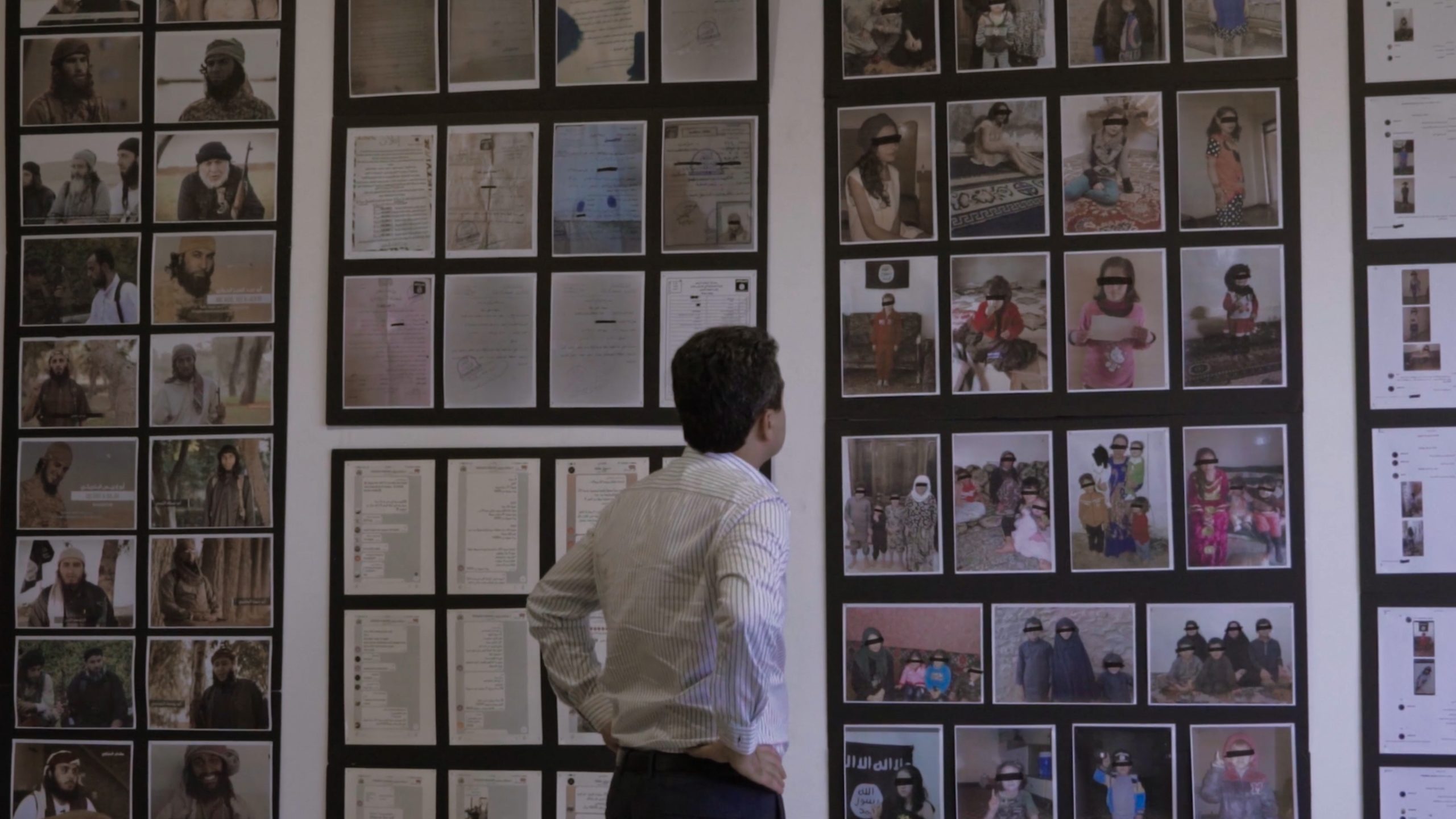
Oswald and Mediha’s collaboration continues even now, with the MEDIHA team working “constantly” to secure her asylum. I am disheartened to hear that they are still in the “unfortunately slow process” of requesting asylum for Ghazwan and Adnan, whose stories in the film are so closely entwined with their sister’s. Presently, 3,000 Yazidis remain missing. This includes Mediha’s mother, Afaf, who could be one of the vast number of women living under different names, in fear of persecution for their involuntary affiliation with ISIS.
When I asked her how it felt to see herself represented on the cinema screen for the first time she told me: “I didn’t know if it would just end up on YouTube or who would see it, but seeing it in a packed theater full of people…was the most incredible feeling in the world.” Mediha is now 19, living in NYC with help from non-profit organisation Project Rousseau, and training in Human Rights law. Oswald tells me Mediha’s healing journey is far from over and this much is evident from the film, but her current position as MEDIHA premiers in the UK tells us the journey of her ambition is also only in its early stages. Both director and subject, then, are standing nearer to the starting point of their careers than the end, and I can only wish them the best and commend the film for its commitment to candour and respectful representation.
MEDIHA is now showing in cinemas across the UK. ∎
Words by Alice Robey-Cave. ImagesCourtesy of Together Films.


